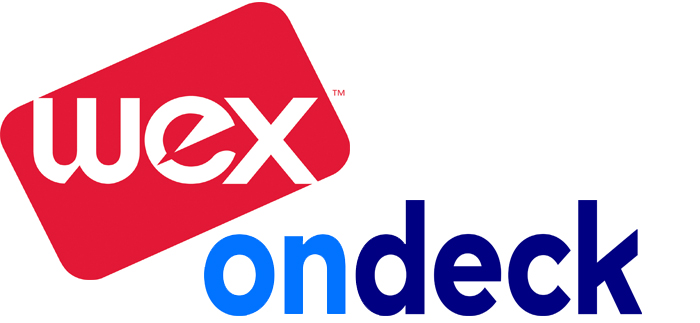Archive for 2017
If You Don’t Make Loans, You’re Not a Lender (And definitely not a ‘direct lender’)
January 19, 2017 Small business owners in multiple states are arguing that the contracts they engaged in were loans despite the agreements specifying otherwise. In one case with multiple defendants that was filed two weeks ago in federal court, the plaintiff attached emails from the ISOs and funders they allegedly communicated with as evidence, several of which purportedly used the words “loans” or “lender.” That on its own might not be so bad except that the plaintiff entered into contracts for the purchase of future sales, in which case the words would not make sense.
Small business owners in multiple states are arguing that the contracts they engaged in were loans despite the agreements specifying otherwise. In one case with multiple defendants that was filed two weeks ago in federal court, the plaintiff attached emails from the ISOs and funders they allegedly communicated with as evidence, several of which purportedly used the words “loans” or “lender.” That on its own might not be so bad except that the plaintiff entered into contracts for the purchase of future sales, in which case the words would not make sense.
While that matter and others will be litigated and decided on the merits, this should be a wake-up call for any ISO or funder that thinks the use of proper terminology is best left for lawyers and fine print in contracts. A court ordered recharacterization of a contract could have very negative consequences (if you want to know what kind, speak with an industry attorney).
Imagine working for a small ISO and one day being subpoenaed to do a deposition and potentially facing liability because of something you said on the phone or in an email. The easiest way to avoid this is to use the proper terminology at all times. If the product you sell or underwrite is a standard merchant cash advance (purchase of future sales), then it will never make sense to say loan, lender or any words related such as repay in any communication regardless of whether or not it’s with a customer or internally. Calling yourself a “direct lender” for example, is especially illogical.
If you’re at all confused, seek out your company’s manager or compliance officer for additional training. Another helpful resource is Merchant Cash Advance Basics, A certification course offered by CounselorLibrary and deBanked to help explain the differences between loans and MCAs. Given the challenges taking place in courts around the country, it’s never been more important to be knowledgeable on the products you offer.
Everlasting Capital Releases EverHub, a Front-End Online Portal That Delivers Enhanced Online Capability for Partners and Equipment Vendors
January 17, 2017Rochester, NH, January 17, 2017 – a trusted lender of short term working capital, equipment finance & leasing, and consolidations, today announced the general launch of the EverHub front-end solution. Everlasting Capital’s dedicated front-end proposition for Independent Sales Offices and Equipment Vendors provides an improved online service offering for building stronger relationships with our partners and clients.
The solution comprises two distinct portals, Partner Portal & Vendor Portal, each offering a user experience tailored specifically for the intended target product. The Vendor portal is intuitive and delivers convenient, time-saving access to account data, approval, underwriting, and funding information. The Partner portal delivers the same functionality but with a significantly more powerful, task and MI oriented interface for the efficiency and transparency of each file.
Josh Feinberg, Chief Executive Officer at Everlasting Capital, said “The pressure is on to retain and boost assets under management. As such, web-delivered services – which meet partner demand for convenient, time-saving access to client account data – are increasingly important. Whether a Partner or Vendor, EverHub provides the exact data they need whenever they need it, while also offering both the ability to better track applications, underwriting/funding activity, and deliver needed product messages.” He added, “We are seeing a new wave of digitalization within the financial services market and with EverHub we are enabling ISOs, equipment vendors and their personnel to really get ahead of the competition.”
The portals are delivered and deployed as a single application package and introduce significant efficiency savings from close integration with back-office administration systems and analytics. They offer real-time, web and mobile delivered access to key functionality, with simple deployment and light implementation effort. Support for multiple brands enables different, customer propositions to be developed for both ISOs and vendors.
The EverHub solution is data agnostic, using its service oriented architecture to consolidate and present information from multiple systems. Core capabilities include single sign-on, 24×7 availability and reactive design techniques. The solution is backed by a comprehensive and proven service proposition, covering support and maintenance, as well as consulting and development services.
Everlasting Capital’s Chief Executive Officer, Josh Feinberg was quoted in this press release. To ask Everlasting Capital a question regarding the release or to discuss it in more detail, email EverHub@everlastingcapital.com.
Source: Everlasting Capital
WEX and OnDeck Announce Strategic Partnership to Offer Financing to WEX Small Business Customers
January 17, 2017
SOUTH PORTLAND, Maine–(BUSINESS WIRE)–WEX Inc. (NYSE: WEX), a leading provider of corporate and small business payment solutions, and OnDeck® (NYSE: ONDK), a leader in online lending for small business, announced a partnership in which WEX will offer business financing from OnDeck to its small business customers.
WEX is a global, multi-channel provider of corporate payment solutions representing more than 10 million vehicles and offering exceptional payment security and control across a wide spectrum of business sectors. The company and its subsidiaries employ more than 2,500 associates who provide services in the Americas, Europe, Australia, and Asia.
“Our partnership with OnDeck will be a huge benefit to our small to mid-sized business customers who will now have access to new sources of financing,” said Brian Fournier, vice president, fleet channel partner, WEX. “The strategic partnership will enable these customers to take advantage of OnDeck’s leading portfolio of products and services.”
“OnDeck is 100 percent focused on helping small businesses seize opportunities, such as hiring employees, funding marketing, or buying inventory,” said Jerome Hersey, vice president, OnDeck. “Our partnership with WEX, an innovator in the payments marketplace, will enable us to offer more small businesses an unparalleled set of choices to meet their financing needs.”
For more information about WEX’s small business offerings, please visit: http://www.wexinc.com/fleet/small-business/.
About WEX Inc.
WEX Inc. (NYSE: WEX) is a leading provider of corporate payment solutions. From its roots in fleet card payments beginning in 1983, WEX has expanded the scope of its business into a multi-channel provider of corporate payment solutions representing approximately 10 million vehicles and offering exceptional payment security and control across a wide spectrum of business sectors. WEX serves a global set of customers and partners through its operations around the world, with offices in the United States, Australia, New Zealand, Brazil, the United Kingdom, Italy, France, Germany, Norway and Singapore. WEX and its subsidiaries employ more than 2,500 associates. The company has been publicly traded since 2005, and is listed on the New York Stock Exchange under the ticker symbol “WEX.” For more information, visit www.wexinc.com and follow WEX on Twitter at @WEXIncNews.
About OnDeck
OnDeck (NYSE: ONDK) is the leader in online small business lending. Since 2007, the Company has powered Main Street’s growth through advanced lending technology and a constant dedication to customer service. OnDeck’s proprietary credit scoring system – the OnDeck Score® – leverages advanced analytics, enabling OnDeck to make real-time lending decisions and deliver capital to small businesses in as little as 24 hours. OnDeck offers business owners a complete financing solution, including the online lending industry’s widest range of term loans and lines of credit. To date, the Company has deployed over $5 billion to more than 60,000 customers in 700 different industries across the United States, Canada and Australia. OnDeck has an A+ rating with the Better Business Bureau and operates the educational small business financing website www.businessloans.com.
OnDeck, the OnDeck logo, OnDeck Score and OnDeck Marketplace are trademarks of On Deck Capital, Inc.
Contacts
WEX
Rob Gould, 207-523-7429
robert.gould@wexinc.com
or
OnDeck
Jim Larkin, 203-526-7457
jlarkin@ondeck.com
CAN Capital is Changing the World’s Most Expensive Tire
January 16, 2017
Acting CEO Parris Sanz told the WSJ that what’s happening at CAN Capital right now is akin to changing a flat tire. “We hit a bump in the road and blew out a tire,” Sanz said. “We just need to change out the tire, and we’ll be back on the road.”
But sources say that the company is in the midst of trying to sell off assets including its loan portfolios to raise cash in a hurry. In the span of a few weeks the company has let go of more than half of its employees, has suspended funding new deals, put its top executives on leave, been sued by a shareholder, and suffered a rapid amortization event with its $200 million bond deal. That’s on top of a breach that the WSJ reported with CAN’s $650 million credit facility led by Wells Fargo. A spokesperson for Wells told me they could not provide any comment or information on the matter.
And CAN’s issues aren’t the result of a changing economy, but rather internal systems that couldn’t keep up with their innovations. They’ve even hired a restructuring company to assist them through this crisis. It now being more than a month and a half since the story first broke, the WSJ puts the amount CAN is trying to raise “to strengthen its financial position” at $100 million.
If this is how they go about changing a tire, it may be time they sign up for AAA Roadside Assistance. For the merchant cash advance industry, their predicament is one of the biggest events of the decade by virtue of their history, size and renown. The company has funded more than $6 billion to small businesses since they launched in 1998.
Consider that just a few months ago, CAN was seemingly riding high as it promoted its new lending transparency initiative as part of the Innovative Lending Platform Association. And in July, Sanz represented the MCA & small business lending industry in a congressional hearing dedicated to financial institutions and consumer credit.
CAN’s top competitor is OnDeck whose stock has only inched up 8% since November 29th.
A spokesperson for CAN reiterated that this was an issue that they self-discovered and self-reported. “In the absence of information, people are making incorrect assumptions,” she said. “It affected about 3% of total assets in the portfolio under our senior line. It’s a manageable situation and one we are working through as we position ourselves for success in 2017.”
MCA Company Files Suit Against Debt Settlement Company
January 16, 2017Plaintiffs Pearl Gamma Funding, LLC and Pearl Beta Funding, LLC (Pearl) aren’t happy with what a debt settlement firm is allegedly telling their customers, according to a complaint filed in the New York County Supreme Court in November.
“Creditors Relief LLC researches customers who have entered into Merchant Agreements with Pearl, solicits them throughout the country, and advises them to breach their contracts with Pearl,” plaintiffs allege. They also cite an example in which an employee of defendant allegedly told a customer “that Pearl was engaging in illegal activity and its Merchant Agreements were unenforceable.”
Pearl’s causes of action against the defendant include tortious interference with contract, defamation and permanent injunction.
Creditors Relief, based in Englewood Cliffs, NJ, denied the allegations in their response but has asked the court to declare Pearl’s contracts with its customers unenforceable nonetheless.
Due to the nature of pending litigation, neither party was asked to comment.
Funding Circle’s New $100 Million Funding Round is a Surprise, But it’s Really Not
January 13, 2017The alternative small business lender that is arguably offering the longest terms with the lowest rates has secured a $100 Million Series F Round, according to an announcement on Wednesday.
With the round led by Accel, the strong sign of confidence contradicts the sentiment felt by many in the US about their business model. In the last few months, several of Funding Circle’s US competitors have suspended operations, shut their doors, or integrated into other companies. Most of the questions we’ve received lately have centered around “who’s next to fall?” not “who’s next to raise $100 million?”
So what’s going on here?
Imagine in an alternate universe that the US government was using Funding Circle’s platform to fund millions of dollars to small businesses, that the US Treasury Secretary was publicly cheering them on, and that they sat on Capitol Hill drawing up new laws that would regulate their industry in a way that would help them succeed, would you bet on them to win?
 That alternate universe exists and it’s called the United Kingdom. It’s also Funding Circle’s primary market. Just last week the UK government lent Funding Circle another £40 million on top of the previous £60 million to lend to small businesses amid credit concerns related to Brexit and it’s only one example of how cozy government relations are over there.
That alternate universe exists and it’s called the United Kingdom. It’s also Funding Circle’s primary market. Just last week the UK government lent Funding Circle another £40 million on top of the previous £60 million to lend to small businesses amid credit concerns related to Brexit and it’s only one example of how cozy government relations are over there.
Chancellor of the Exchequer (the US Treasury Secretary equivalent), Philip Hammond, said: “Funding Circle has become a real success story for British Fintech and news that it has attracted £80 million (US $100 mil) of investment is further evidence of the growing importance of this industry. This is another vote of confidence in a UK firm that plays an important role in our economy – helping businesses to grow and create jobs.”
And in a TV interview with Bloomberg, Funding Circle co-founder James Meekings said that the company is working with the government to help draft the regulations that they would have to abide by. Sounds like a nice arrangement.
The UK is still their biggest market but part of their $100 million funding round will be used to further develop their US business, Meekings said on Bloomberg. To date, the company has raised $375 million. Less than two years ago, their private market valuation was $1 billion, more than twice OnDeck’s current market cap. Funding Circle’s valuation in this round was not disclosed.
Funding Circle’s global loan volume these days rivals OnDeck’s. £400 million was lent by Funding Circle in Q4 versus $613 million lent by OnDeck in Q3, setting up the possibility that the former could surpass the latter in volume this year.
Funding Circle’s publicly traded SME Income Fund has also held up pretty well over the last year:
Shortly after announcing their funding round, a trade group they co-founded in the US, the Marketplace Lending Association, welcomed 11 new members. Might Funding Circle eventually gain the same favor in the US that they’ve nurtured in the UK? Would you bet on them?
Marketplace Lending Association Announces 11 New Members
January 12, 2017
WASHINGTON, Jan. 12, 2017 /PRNewswire/ — The Marketplace Lending Association (MLA) today announced the addition of eleven new companies to the Association. The new members join as the MLA works to expand its presence in Washington. The MLA was formed in 2016 by founding members Funding Circle, Lending Club, and Prosper Marketplace with the goal of promoting a transparent, efficient and customer-friendly financial system.
New Members include: Affirm, Upstart, CommonBond, Avant, PeerStreet, Marlette Funding, Sharestates, Able, and StreetShares. New Associate Members of the MLA include dv01 and LendIt.
This expansion represents a new chapter for the MLA, as it extends the group beyond consumer and small business lending to include platforms focused on student loan refinancing and real estate, as well as greater diversity of funding models, including lending platforms that hold loans on balance sheet.
“On behalf of the founding members, I welcome these new members to the Association and I look forward to working with them to advance our mutual public goals both in Washington and in state capitols around the country,” said Nathaniel Hoopes, executive director of the MLA. “As MLA member companies continue to innovate and create new opportunities for borrowers and investors, the MLA will play an important role in sharing data and insights that help educate policy makers on the benefits that these companies bring to consumers, businesses, and our financial system.”
To provide policymakers with a general overview of its 2017 agenda, the Association also today sent letters to the incoming Trump Administration and to the leaders of the 115th Congress.
ABOUT MLA
MLA, a professional trade association, was formed in 2016. The goals of the Association are to promote a transparent, efficient, and customer-friendly financial system by supporting the responsible growth of marketplace lending, fostering innovation in financial technology, and encouraging sound public policy at the state and federal level. To be eligible to join the association MLA companies must abide by the highest standards of business conduct in providing credit and services to consumers and businesses.
For more information about MLA, its members and its membership standards, visit the MLA website at www.marketplacelendingassociation.org.
Media Contacts:
Nathaniel Hoopes – Executive Director
Phone: (202) 660 1825
nat.hoopes@marketplacelendingassociation.org
Funding Circle announces $100 million equity investment to help thousands more small businesses globally
January 11, 2017
- Round led by Accel, with participation from other existing equity investors
- Investment comes as UK business reached profitability for Q4 2016
- Lending through Funding Circle passes $3 billion globally, benefitting over 25,000 businesses in the UK, US and Europe – creating more than 50,000 new jobs
Funding Circle, the world’s leading lending platform focused exclusively on small business finance, today announced it has raised a further $100 million in equity capital. Led by Accel, the round saw participation from existing Funding Circle investors, including Baillie Gifford, DST Global, Index Ventures, Ribbit Capital, Rocket Internet, Sands Capital Ventures, Temasek and Union Square Ventures.
The new investment follows significant growth at Funding Circle over the last 12 months. Globally, investors on the Funding Circle platform have lent more than $1.4 billion to small businesses in 2016, with approximately $485 million lent in Q4 alone, a record amount for any SME direct lending platform. Additionally, in Q4 Funding Circle UK recorded 90 percent year-on-year growth and reached profitability.
Samir Desai, CEO and co-founder of Funding Circle, said: “Funding Circle is changing the financial landscape for small businesses and investors globally, ensuring a better deal for everyone and helping to create a more sustainable and fairer economy. Today’s news is the next step on our journey to create a category-defining company that helps thousands of small businesses access finance and create jobs. Over the next 12 months, lending through the Funding Circle platform will create a further 50,000 new jobs, supporting economic growth in the UK, US and continental Europe.”
 Funding Circle facilitates lending to small businesses from investors including 60,000 individuals, local and national government, the European Investment Bank and financial institutions such as pension funds. The investment comes as lending to small businesses through the platform passes $3 billion globally, benefitting over 25,000 businesses and creating 50,000 new jobs.
Funding Circle facilitates lending to small businesses from investors including 60,000 individuals, local and national government, the European Investment Bank and financial institutions such as pension funds. The investment comes as lending to small businesses through the platform passes $3 billion globally, benefitting over 25,000 businesses and creating 50,000 new jobs.
Harry Nelis, Partner at Accel, said: “We’ve been impressed by the Funding Circle team since our early investment in the company. It has achieved significant growth across multiple international markets by delivering an appealing lending option to SMEs and attractive risk-adjusted returns to investors on the platform. This investment makes Funding Circle the largest and best capitalized SME lending platform in the world, and we’re thrilled to continue to support its journey.”
Launched in 2010, the Funding Circle model has opened up small business lending to a wide range of investors, improving competition in the market, creating jobs and reducing dependency on bank lending. This latest investment is recognition of the efficiency of the direct lending model, and its ability to channel much-needed funds to the real economy, while providing investors with attractive, stable returns. In total, Funding Circle has now raised $373 million in equity funding from some of the world’s largest and most respected investors.
By bringing together industry leading risk management and cutting edge technology, creditworthy businesses typically access the capital they need in days rather than months.
About Funding Circle
Funding Circle (www.fundingcircle.com) is the world’s leading lending platform for business loans, matching small businesses who want to borrow with investors who want to lend in the UK, US and Europe. Since launching in 2010, investors at Funding Circle – including 60,000 individuals, financial institutions, the listed Funding Circle SME Income Fund and Government – have lent more than $3 billion to 25,000 businesses globally. Approximately 10 percent of investor money now comes from Government sources, including the British Business Bank, European Investment Bank, KfW, the German government-owned development bank, and local councils across the UK. Funding Circle was the first lending platform to announce a formal referral partnership with Santander, one of the UK’s leading high street banks, and has since announced a similar partnership with RBS. It has raised $373m in equity capital from the same investors that backed Facebook, Twitter and Airbnb.
About Accel
Accel is a leading early- and growth-stage venture capital firm, powering a global community of entrepreneurs. Accel backs entrepreneurs who have what it takes to build a world-class, category-defining business. Founded in 1983, Accel brings more than three decades of experience building and supporting hundreds of companies. Accel’s vision for entrepreneurship and business enables it to identify and invest in the companies that will be responsible for the growth of next-generation industries. Accel has backed a number of iconic global platforms, which are powering new experiences for mobile consumers and the modern enterprise, including Atlassian, Avito, BlaBlaCar, Deliveroo, Dropbox, Etsy, Facebook, Flipkart, Funding Circle, Kayak, QlikTech, Simplivity, Slack, Spotify, Supercell, WorldRemit and others.





























